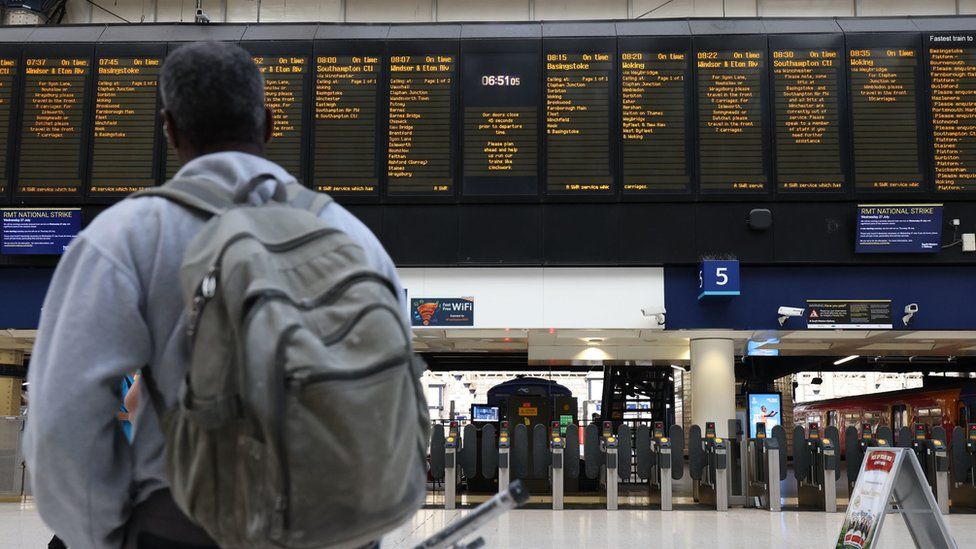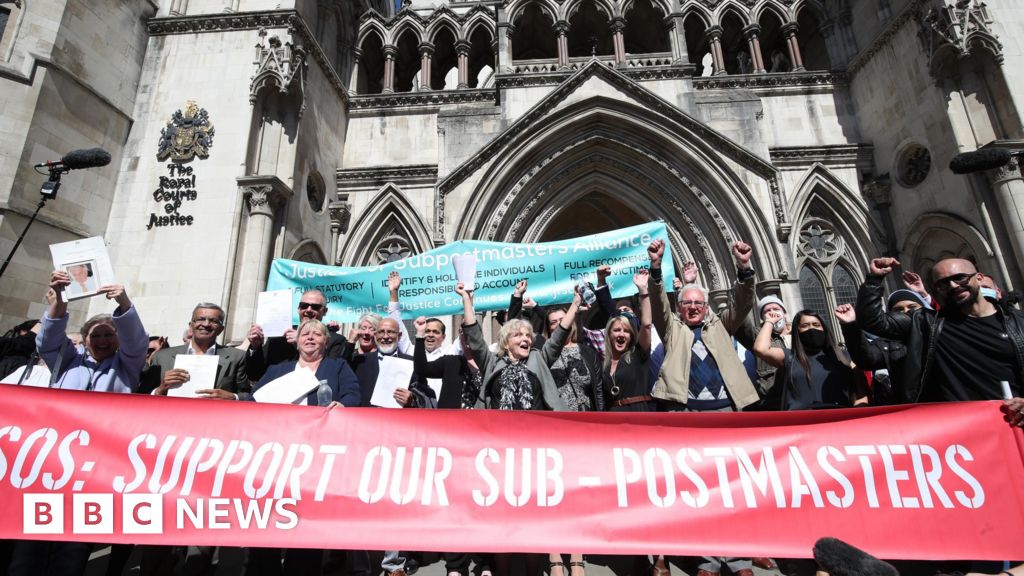ARTICLE AD BOX
By Michael Race & Katy Austin
Business reporters, BBC News
 Image source, PA Media
Image source, PA Media
Train companies affected by Saturday's train driver strike have scaled down their timetables with some operators running no services at all.
Nine train companies will be affected when 6,500 members from train drivers union Aslef walk in a row over pay.
Passengers have faced disruption over the summer due to several rail strikes, with unions wanting pay increases in line with the rising cost of living.
But rail bosses have accused unions of a "total disregard" for passengers.
Train operators including Southeastern, CrossCountry, London Northwestern Railway and West Midlands Railway will run no services on Saturday.
Elsewhere, Great Western Railway has said "an extremely limited service" will operate, but only between Bristol Temple Meads and London Paddington, Reading and Oxford, and Reading and Basingstoke.
Avanti West Coast has told passengers most of its network will have no services, and is advising them not to travel. Hull Trains will only run one service too and from London King's Cross.
Meanwhile, LNER said it will only run an extremely limited timetable and its trains will be very busy. There will be only one return train from Leeds to London train all day, and one train every two hours in both directions between Edinburgh and London.
Greater Anglia has also told passengers to avoid travelling on the Stansted Express on Saturday because it will be heavily reduced service, with no direct trains on that route. There will also be no direct Stansted Express trains on Sunday.
The London Underground is also expected to be affected. Transport for London has also advised passengers there will be no service on the entire London Overground network, which is operated by Arriva Rail London, whose drivers are part of the strike.
The Rail Delivery Group, which represents train operators, has said passengers with tickets on the strike day can use their ticket either on the day before, or up to and including Tuesday 16 August.
The group has previously said Aslef's strike announcement showed a "cynical approach to talks, a total disregard for passengers and is putting everyone's summer plans at risk".
"This action will bring the total number of strike days on the railway to ten, disrupting plans in June, July and August," a statement said.
Why are railway workers going on strike?
Train drivers union Aslef, along with the RMT union and the TSSA are in dispute with the government and rail companies about pay, job cuts and changes to terms and conditions.
In 2021, the median salary for train and tram drivers was £59,189 per year.
Aslef says drivers need a pay rise, saying the rising cost of living means its members have effectively had a pay cut in recent years.
The RMT, which represents rail workers such as guards and cleaners, has been unable to agree a pay deal with Network Rail, which owns the rail infrastructure, and train companies.
Network Rail says its latest offer is worth more than 5%, but that it depended on workers accepting "modernising reforms". However, the RMT says this is a "paltry sum" and represents a real terms pay cut.
The RMT has another issue with plans by Network Rail to cut 2,500 maintenance jobs, as the company tries to save £2bn over the next two years.
Network Rail says there would be no more than 2,000 job losses - and that all redundancies can be voluntary. It says it would not consider any changes that would make the railways less safe, but stresses modernisation is needed.
The government has said the railway system needs modernisation and has to be financially sustainable for the long term. It says £16bn of taxpayers' money was used to support the railways during the Covid pandemic. However, with passenger numbers still down by one-fifth, it says changes are needed.

 2 years ago
65
2 years ago
65








 English (US) ·
English (US) ·